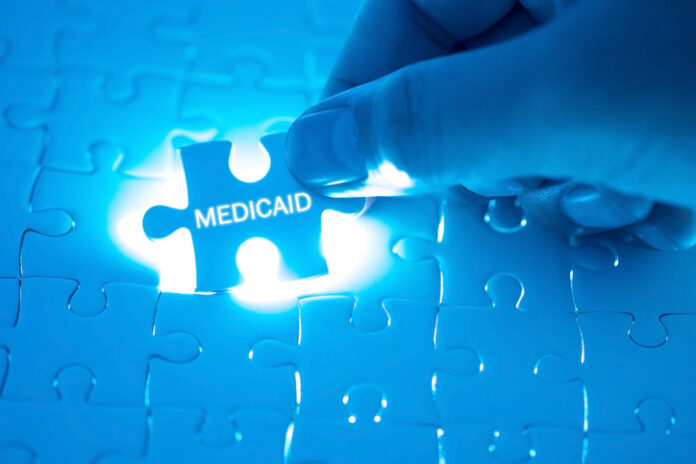The Senate’s rejection of the giant Build Back Better (BBB) tax and spending bill also spelled defeat for the measure’s health care provisions, many of which built on existing programs riddled with fraud and waste.
The bill’s provisions on Medicaid Home and Community-Based Services (HCBS), for example, contained a permanent 6 percent increase in federal Medicaid matching funds. But to qualify for these funds, states would have to maintain existing HCBS eligibility, benefits, and payment rates and have an approved plan for expanding HCBS access, adding to the program’s red tape.
Another section of BBB would have provided $1 billion in grants to states, community-based organizations, educational institutions, and other entities by the U.S. Department of Labor to develop and implement strategies to recruit, train, and retain the HCBS workforce.
There was a shortage of home caregivers before the outbreak of COVID-19 that has worsened as the pandemic has dragged on. BBB, however, failed to expand Medicaid waivers by allowing states to provide more direct-pay “cash and counseling” programs in which money goes directly to patients, instead of third-party caregivers.
“If instead of throwing good money after bad, we focused on rational reform of existing programs, we might find that the ‘unmet needs’ the Democrats have targeted could be adequately met—without spending any additional taxpayer dollars,” wrote John C. Goodman, president of the Goodman Institute for Public Policy Research and co-publisher of Health Care News, in The Daily Signal.
Cash and Counseling
An option for home care that has worked successfully at the state level for many years is Cash and Counseling. Originally a pilot Medicaid program in 15 states, these financial and care assistance programs are usually, but not always, part of state Medicaid programs.
“Under that program,” wrote Goodman “money goes to the patient, not the caregivers. Patients can hire and fire their service providers, and the type of person who can be a provider also has been expanded. Some states even allow spouses to be caregivers.”
Since its inception, the concept of Cash and Counseling and the number of states in which it is available has expanded considerably. Today, the program is sometimes referred to as Consumer Direction, Participant Direction, Self-Directed Care, and a variety of other state-specific names, such as Services My Way (Pennsylvania), In-Home Supportive Services (California), and Choice Waiver (Michigan).
Consumer-Directed Care
While the rules and regulations of self-directed care vary by state, medicaidassistanceplanning.org states all state programs have in common “the ability [by the person receiving care] to choose, hire, train, and even fire, their own caregivers to assist with the activities of daily living (bathing, dressing, mobility, toiletry, transferring, and eating.”
The website states, “…49 states offer consumer direction in their Medicaid programs, 29 states have consumer direction in their non-Medicaid or non-profit assistance programs, 42 states allow for some veterans’ care services to be self-directed, and life and long-term care insurance policy conversion programs are available in all 50 states.”
The Biden administration and congressional Democrats are considering several options to implement health care provisions in the failed BBB legislation, including a scaled-back version of BBB and/or executive orders, regulatory action, and inserting relevant language into budget and spending bills. This piecemeal approach could get some of their agenda realized while Democrats are still in power.
Government Never Quits
Government top-down approaches take the long road to resolving personal needs, says Linda Gorman, director of the Health Care Policy Center at the Independence Institute in Colorado (see article).
“The problem is that government never knows when to quit,” said Gorman. “And, as the COVID policy debacle has shown, those who make health policy are often unable or unwilling to properly assess risks and benefits for the various parties involved.
For example, the home care benefit the Biden Administration wants to add would give the 20 percent of Medicare patients being discharged from the hospital to a skilled nursing facility the right to duplicate skilled nursing care services at home,” said Gorman.
Bonner R. Cohen, Ph.D. (bcohen@nationalcenter.org) is a senior fellow at the National Center for Public Policy Research.
This article was updated on January 28, 2022.






















[…] post Congress Missed Opportunity for Self-Directed Health Care appeared first on Heartland Daily […]